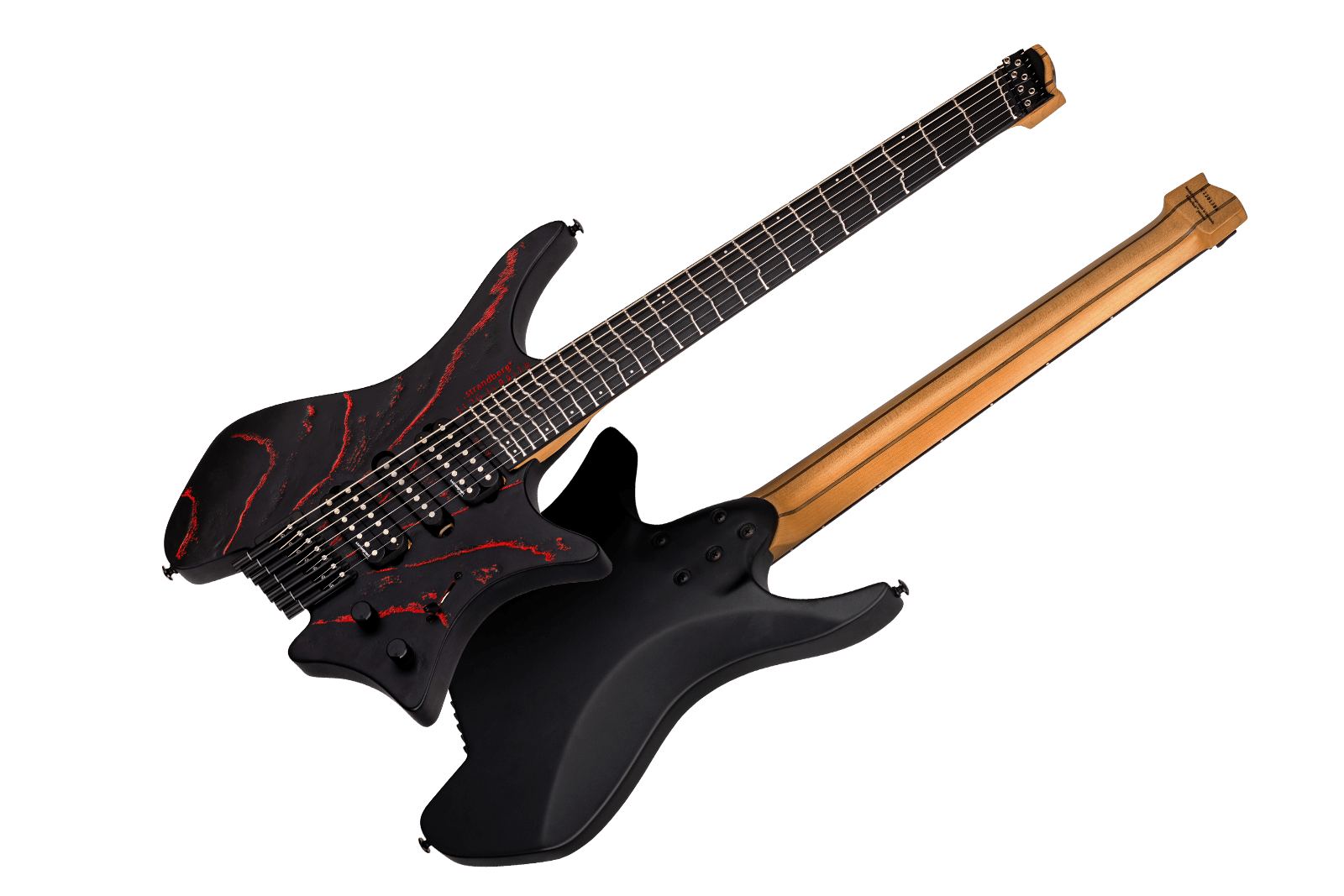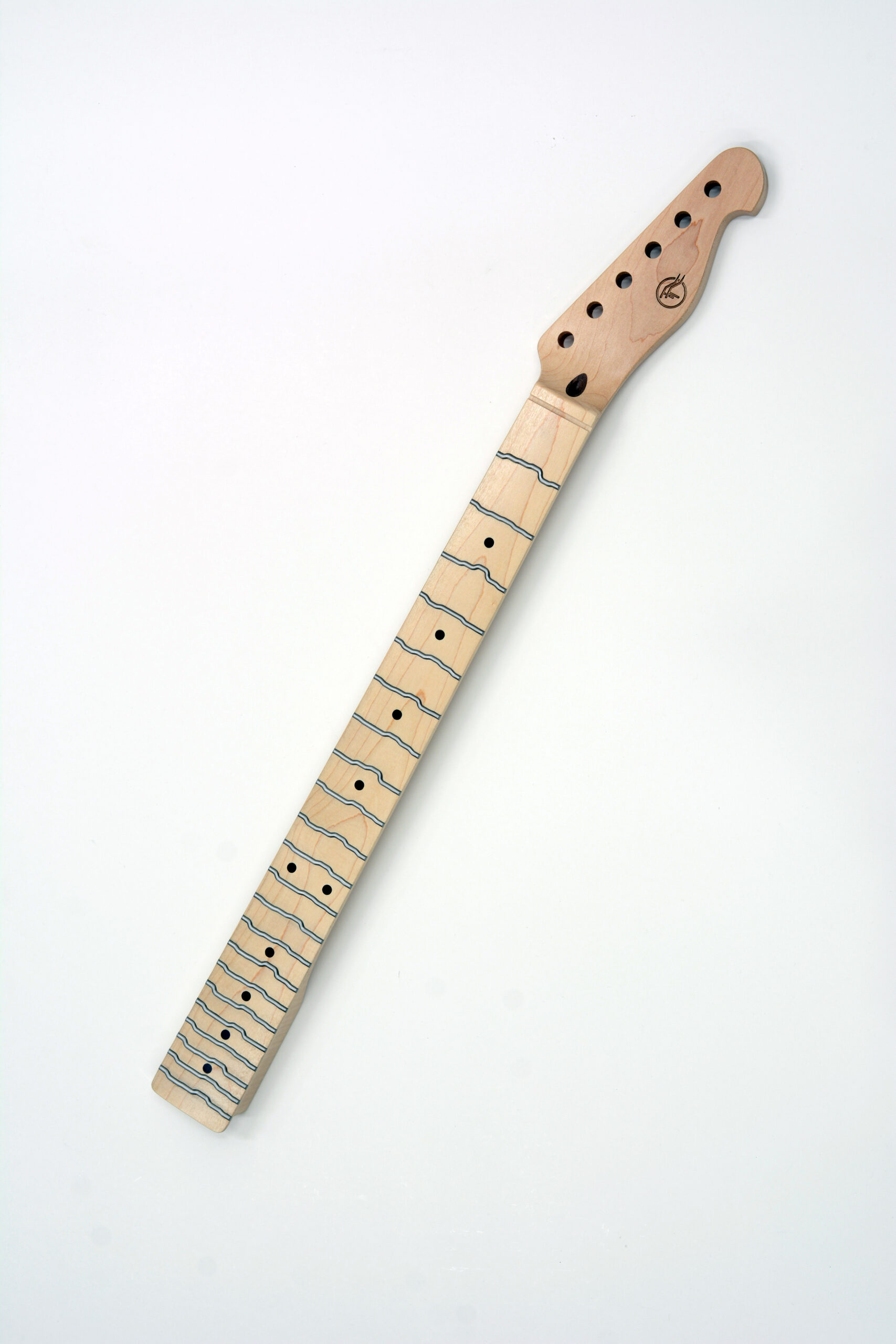-
Interesting stuff. Can someone explain (to a dumb classical guitarist
 ) why a true tempered neck would sound good in some keys but not in others.
) why a true tempered neck would sound good in some keys but not in others.
Commented on my blog about the concept.
http://spruceguitar.wordpress.com/20...-guitar-necks/
I think I would have a problem playing the neck as the frets are in the wrong spots. Also no classical guitar maker I know builds guitars this way.
-
10-07-2013 06:16 AM
-
From what I was thought, above is not true.
 Originally Posted by cjm
Originally Posted by cjm
-
This is my answer to both Buzz, and the other Nut one:Quote Originally Posted by cosmic gumbo View Post
I'm surprised nobody has mentioned the Buzz Feiten Tuning System.
-
Has anyone played one of these?
Strandberg Boden+ NX 6 True Temperament Headless Guitar | Reverb
Intriguing but it appears they've been discontinued - no major retailers selling new ones. Perhaps folks aren't buying because they're not sure they're worth the price (much higher than standard fret models) or won't buy them without playing them first. They also make 7 & 8 string models.
-
Yes. Everybody knows that Joe Pass never had to tune his guitar because it was tuned at the factory. That was years ago.
 Originally Posted by oldane
Originally Posted by oldane

-
I played the Strandberg True Temperament in a guitar shop a few years ago. I didn't notice the strange frets after a while or the endura neck.
 Originally Posted by Mick-7
Originally Posted by Mick-7
Per Nilsson's 7 String Strandberg True Temperament is still available to order here.
Singularity NX 7 True Temperament | .strandberg* Guitars
Strandberg Boden Singularity NX 7 True Temperament Red | Reverb UK

Last edited by GuyBoden; 04-02-2024 at 06:24 AM.
-
GuyBoden, I'm wondering about the sound, supposedly the tonal balance and sustain, particularly with chords, is notably different (better?) on the TT fret guitars.
And what was your opinion of the neck, playing wise? Thank you.
The only models currently on their site are out of stock and they've doubled the price of them!
Boden Futur TT6 Archetype Natural Gloss | .strandberg* Guitars
P.S. - This old thread I resurrected is 13 years old, don't know what guitar they were alluding to at the time.
-
Have you played a normal Strandberg headless guitar?
 Originally Posted by Mick-7
Originally Posted by Mick-7
Their True Temperament guitar sounded very similar. The Endura neck had the same feel, thumb behind the neck position.
If you are interested, you could buy a Tele or Strat neck with true temperament frets. Then put the neck onto your guitar.
True Temperament standard retrofit guitar necks.
Standard T-Neck Maple Fingerboard – True Temperament Shop

-
A view from:
A (hopefully) clear explanation and summary of True Temperament fretting | SevenString.org
"TT's fretting system moderately improves the harmony of major and minor thirds on 6 out of the 12 root notes, at the expense of thirds on the other root notes.
The intention is for the musician to play music that is careful to only use the root notes that improve, or do not worsen, the thirds. Also, chords should be mostly major and minor triads.
Being restricted in this way was not much of a problem for Baroque and Classical music, as those often used rather limited and predictable key modulations and chord progressions, and chords were mostly major and minor triads. Mainstream pop and rock music also does so.
Musicians who have a more unconventional use of chords, key modulations and chord progressions will not experience an overall improvement in harmony, because gains cause equal losses elsewhere."
-
Very interesting. A friend of mine tried out a Strandberg with this system and found it to be worse than normal. That explanation suggests that Eb and Bb are two keys that suffer, so that would support her findings.
-
I saw this somewhere else, not my words but sounds knowledgeable. I know Steve Vai has a few guitars with these necks and often plays them live, but he plays a lot more solo lines than chords, really.
"It is a mathematical fact that if you deviate from equal temperament, some chords can may certainly get better, but others must necessarily get worse. Equal temperament is a compromise which spreads the 'error' equally across all keys.I'm sure this guitar plays beautifully in E major (or whichever key it was optimized for). However, the same changes you need to give a guitar perfect intonation in E major will necessarily make it sound worse in, say, C# major.
For example, equal-tempered major third interval is sharp by about 14 cents. For an E major chord, this would be the G# (G string, 1st fret). If you adjust that fret to lower the pitch of G# by 14 cents, the E major chord will certainly be improved. However, G# is a note also used in a C# chord (as the perfect fifth). Normally the perfect fifth interval is about 2 cents flat in equal temperament. But since you've moved the G# 14 cents flatter, the interval from C# to G# is now 16 cents flat, instead of the 2 cents flat you had before. Every interval you improve will make at least one other interval worse.
There is no cure for this problem; it is fundamentally unsolvable unless the strings were to automatically re-tune themselves every time you play a chord."
-
That's a bit of an over-simplification at least for baroque and earlier music. The music in question isn't just written in keys that sit well on the temperaments in use at the time. Rather, modulations and keys that introduce noticeably off intervals were used for affect, pieces were probably grouped by key during performances and it was common to re-tune. There wasn't just 1 of each of those unequal temperaments, but each could be centred on a specific key.
 Originally Posted by GuyBoden
Originally Posted by GuyBoden
In fact, the whole art de préluder evolved around the tuning of an instrument to a new key. We're probably not talking about keyboard instruments here, but rather fretted instruments, in particular the lute and gamba families. There, tuning would not just consist of adjusting the strings but also of adjusting frets where appropriate (on instruments with double frets that could include splitting them - and yes, I've seen contemporary gamba players do that).




 Reply With Quote
Reply With Quote







Roman Dodecahedron (12 sided) die discovered,...
Today, 11:16 AM in Everything Else